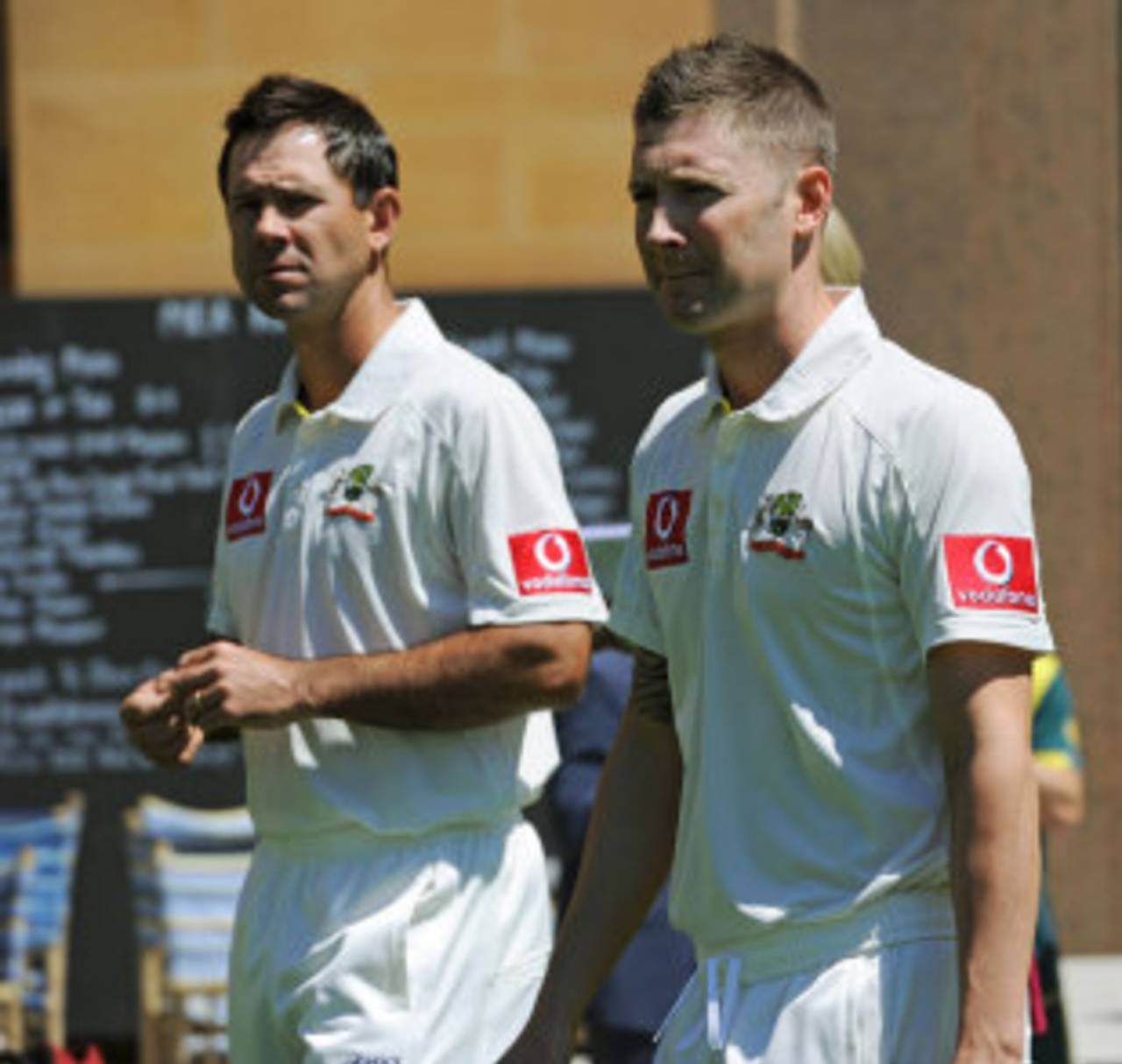Ricky Ponting has stated a most eloquent case for rotating Australia's cricketers at appropriate times in a calendar that, he argues, is now impossible for any player to negotiate without a break.
Citing his own decision to retire from Twenty20 Internationals as a personal form of workload management, Ponting said a series of indifferent displays against Sri Lanka should not be used as evidence of a failed policy. Instead, he reckoned that Cricket Australia may have to do more to educate broadcasters, sponsors and the public about what they were doing when resting the likes of Michael Clarke, David Warner and Matthew Wade.
"The rotational thing... I'm totally for it," Ponting told Inside Cricket. "The thing we have to understand is that the people who are making these decisions are making them for the right reasons, and they're making them for the betterment they think of the team and the betterment of individual players there and then at the time.
"I made some decisions in my career, to retire from T20 cricket when I did, to be as fresh as I could be for every one-day game and every Test match I played. Some of the guys, or most of the guys, in this current team are playing all three forms of the game and IPL and Champions League. They're playing a lot of cricket. So I can understand why the public would at some times be disappointed that our best players aren't playing every game, but I really think it is impossible to expect that our best players do play every game."
Ponting cited the examples of other sports, the schedules of which cricket has only recently begun to reflect when T20 tournaments began to fill up the off-season periods traditionally used for rest and pre-season fitness training.
"If you look at Manchester United or the Chicago Bulls, Michael Jordan probably didn't start in every game the Chicago Bulls played, and Wayne Rooney and those guys don't start, certainly don't play every game Manchester United play," Ponting said."But I think an educational process should be put in place to let the sponsors, the people who are covering the game and the fans understand what's actually going to happen before the day the team is announced."
Rather than railing at sports science invading the game, Ponting said that the greater amount of knowledge at the fingertips of coaches, selectors and CA management represented a step forward from the culture of "cricket fit" he had entered as a teenaged first-class debutant in 1992.
"These days, it's all about the athlete and everything that's happening with sports science around the Australian cricket team is to try and get the best out of each one of our players," Ponting said. "I know there'll be arguments at the moment suggesting that what we're doing is not working or we should go back to the way it was 10 or 15 years ago. But I've been around and seen it all and I think the track we're on is definitely the right one.
"We need to be giving every young player the best chance to be everything they can be and hopefully on Wednesday, you'll see the boys bounce back; and when we get to India, you'll see them play some great cricket there, and it'd be great to see the Test team win the Ashes back as well. If they do that, then a lot of the critics, a lot of the things being talked about around Australian cricket at the moment, will be silenced."
Daniel Brettig is an assistant editor at ESPNcricinfo. He tweets here
